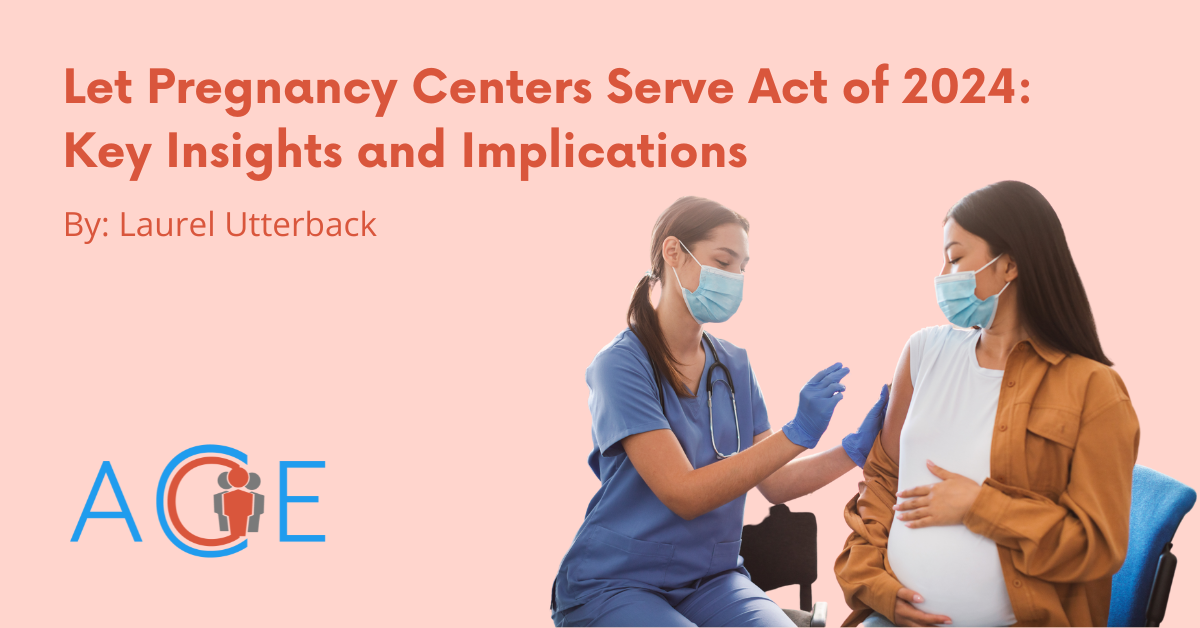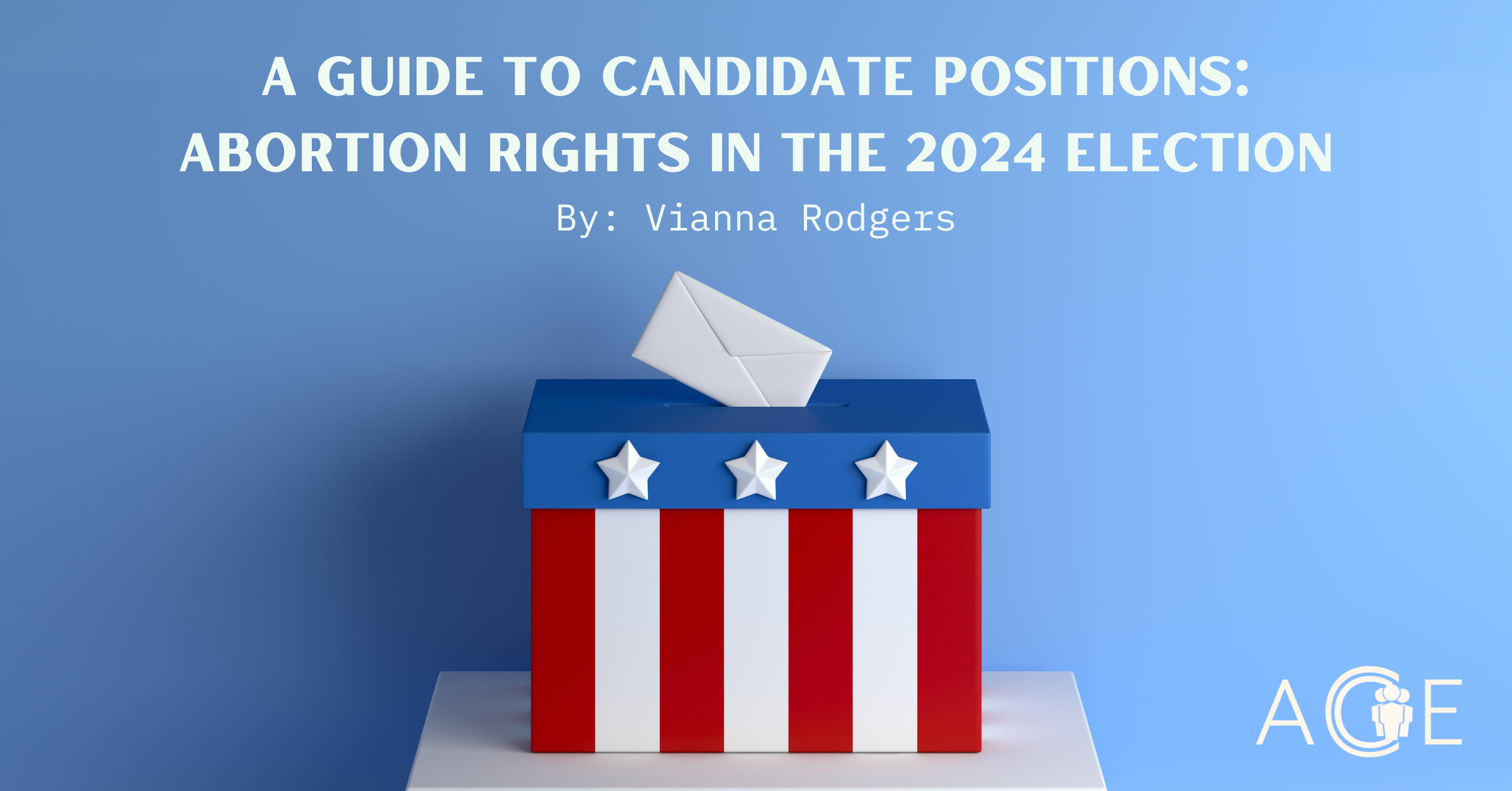What are Crisis Pregnancy Centers?
Crisis pregnancy centers (CPCs) are nonprofit, community-based organizations that aim to ensure pregnant people carry their pregnancy to term. CPCs provide services, including pregnancy tests, ultrasounds, baby formula, and diapers to achieve their mission. While they have operated in the U.S. for decades, CPCs have become more prominent in the public eye in light of the Supreme Court’s Dobbs v. Jackson decision that overturned the national right to abortion. Contention has emerged concerning whether CPCs should continue to receive federal funding and qualify as eligible healthcare centers for patients using federal healthcare assistance programs.
Introduction to the Let Pregnancy Centers Serve Act of 2024
The Let Pregnancy Centers Serve Act of 2024 was introduced to the Senate Committee on Finance by Senator Cindy Hyde-Smith [R-MS] on January 18, 2024, and is currently in the introduction stage. The Act contains two central provisions:
- Maintaining TANF Eligibility: Temporary Assistance for Needy Families, or TANF, is a government program that provides financial assistance to pregnant people and families for the purpose of accessing food, housing, healthcare, and other necessities. States have autonomy in implementing TANF, including determining the type and amount of assistance payments, and the services that can be obtained with TANF funds. The Act would ensure that people who receive TANF can use their benefits to pay for CPC services, and that CPCs can continue to receive TANF-delegated funding from the federal government.
- Renewing federal funding: The Act would prevent the federal government from denying CPCs funding via grants, on the basis that doing so merits federal discrimination against grantees.
Arguments in Support of the Let Pregnancy Centers Serve Act of 2024
Enhanced Access to Pregnancy Services
Proponents of the Act argue that PCPs should be praised for the broad range of goods and services they provide at little to no cost, such as baby clothes and formula. Early pregnancy confirmation is cheaper and more accessible at a CPC than at an abortion clinic, which supporters argue increases accessibility. They cite a study that showed that patients without health insurance were significantly more likely to visit a CPC than not to visit a CPC during their pregnancy. Additionally, proponents believe that the educational programs provided by some centers, such as parenting classes and prenatal care, help equip new and expecting parents with necessary knowledge and skills. In addition, some CPCs offer different types of emotional and psychological support. Advocates of the Act believe that the counseling services provided by some centers can help individuals and families navigate the pregnancy experience and its complexities.
Protection from Federal Discrimination
One of the primary objectives of the Act is to ensure that CPCs continue to receive TANF funding. The bill aims to prevent the Biden administration’s proposed rule that would reduce or cut TANF funding to CPCs. Proponents argue that these centers play a crucial role in providing support to pregnant women, and that losing TANF funding eligibility could significantly impact their ability to offer essential services. Advocates of the bill argue that protection against federal discrimination is crucial for maintaining the viability of CPCs and ensuring they can continue to provide their service without undue interference. Advocates emphasize that CPCs have been allowed to receive federal funding since 1996, and that reversing this practice signals federal discrimination on a national scale. Proponents also argue that states should have the flexibility and power to direct funds to organizations that align with their values and priorities, and that the federal government would infringe upon state’s rights by prohibiting funding to CPCs nationally.
Arguments Against the Let Pregnancy Centers Serve Act of 2024
Misleading Patients
Opponents of the Act argue that CPCs provide misleading or incomplete information about reproduction with the goal of preventing patients from seeking abortion, which can impact patients’ ability to make informed decisions about their health. Most crisis pregnancy centers have a religious affiliation and are not medically licensed, and thus fall outside the scope of consumer protection regulations that are designed to protect patients. Opponents argue that CPCs purposefully and unethically market themselves as health clinics, which has led to the development of websites like ExposeFakeClinics.com and The Anti-Abortion Pregnancy Center Database to warn patients about CPCs in their area.
Critics also claim that many ethical concerns that arise when the government provides TANF funding to organizations that are unqualified to provide medical advice. In particular, critics argue that CPCs’ main goal is to discourage or delay women from seeking abortion services, and that providing them with TANF funding could lead patients to perceive them as legitimate and objective healthcare providers. Delays in medical care, whether it be prenatal checkups or appointments about different options, can lead to more complex and costly procedures later on, and potentially put pregnant people’s lives at risk. Critics believe that by prioritizing funding for un-licensed pregnancy centers, the government risks misleading pregnant people into seeking services at centers with no medical credentials and thus neglecting their healthcare needs.
Misuse of Federal Funds
Additionally, opponents of the Act are concerned that CPCs lack the oversight and accountability required of other TANF-eligible medical facilities, which could increase the risk of mismanaged or ineffectively-used federal funds. While states must spend TANF funding on programs that achieve one of four TANF purposes, some argue that CPCs are deceptive and lack patient-centered care. Critics of the Act believe that TANF dollars could be used in more efficient ways than funding CPCs, such as promoting job preparation and work. They believe that funding CPCs risks diminishing government funds that could be used to fund prenatal care, contraceptive counseling, and more comprehensive maternal health services. Many believe that allowing TANF funds to support CPCs could weaken the overall monetary support network for reproductive health in the nation.
Conclusion
The Let Pregnancy Centers Serve Act of 2024 aims to protect crisis pregnancy centers by allowing states to allocate TANF and other federal grant funds to these centers without federal interference. Supporters argue that CPCs offer vital services that deserve protection and uphold states’ rights to manage their grant distributions. Conversely, opponents express ethical concerns about funding centers that lack medical qualifications, licensure, and oversight. Critics warn that the Act could misallocate federal funds, diverting resources from licensed maternal and contraceptive care programs to less regulated centers. The legislation’s outcome will significantly impact pregnant individuals nationwide.

